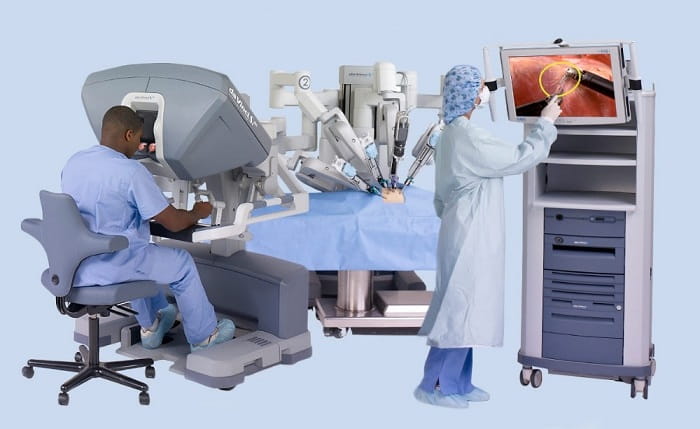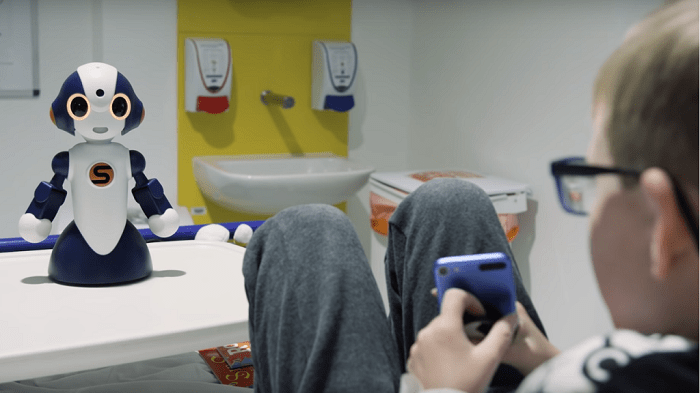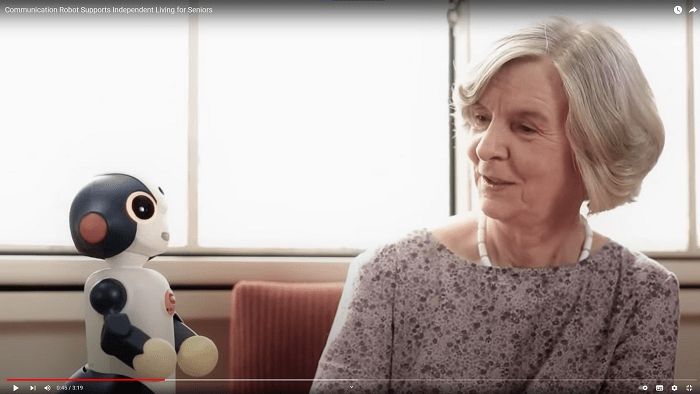Over the last 18 months, we have seen an acceleration in the uptake of technologies across industries. In particular, the rapid adoption of tech has been vital to the healthcare industry, helping in the fight against COVID-19. To date, almost 10092 million vaccinations have been given in the UK – one of the fastest and most effective vaccine roll outs in Europe.
At NTT DATA we support our clients to design and implement digital health strategies. Our clients know that by choosing us, they are benefiting from more than 50 years of experience in healthcare services – not to mention NTT Group’s annual $3.6 billion investment in research and development. Our teams understand today’s new normal and helped several clients adjust to the unprecedented obstacles thrown at them by the pandemic:
- Implemented the rollout of Microsoft Teams over a single weekend to our healthcare customers in the UK to allow non-clinical staff to securely work remotely.
- Investigated the use of advanced AI to support radiologists interpret chest X-rays to diagnose COVID-19.
- Helped one of the largest NHS Trusts – University Hospitals of Leicester (UHL) – innovate at pace in response to the deluge of COVID-19 patients.
You can read more about our work during the pandemic in my previous blog.
Looking forwards
There is little doubt that the healthcare landscape has been permanently altered. Healthcare user expectations are higher than ever. They have embraced telehealth. They want secure access to their health information from any device, anywhere. They want care that’s truly personalised. And this is only just the beginning.
Looking forwards, there are a number of exciting innovations on the horizon. Below, I explore a number of key areas that are currently undergoing huge transformation.
1. Virtual Reality
VR is being used across a number of areas in healthcare. One exciting new application is to train future surgeons by allowing them to practice operations in a virtual space. A recent Harvard Business Review study showed that VR trained surgeons had a 230% boost in their overall performance compared to their traditionally trained counterpart.
NTT DATA supported the development of the DRIVE (Digital Research, Informatics and Virtual Environments) Innovation Labs at Great Ormond Street Hospital – the NHS exemplar for healthcare technology innovation. The idea behind DRIVE was to create a unique informatics hub to harness the power of the latest technologies to revolutionise clinical practice and enhance the patient experience. The space helps researchers to explore how new technologies like augmented reality and social robots can improve health outcomes and the experiences of patients.
2. Robotics
Robotics are rapidly transforming healthcare. This technology relieves medical professionals from everyday tasks and frees up resources for more urgent responsibilities. Surgical robots like the da Vinci Xi are now in use across the world, enabling complex surgical interventions that require dexterity that would challenge the most experienced surgeons. If anyone doubts the capabilities of these machines, they should watch the video of a surgeon using a da Vinci robot to peel a grape.

In 2019 in India, the first remote robotic surgery was carried out on a patient, 20 miles away, where a patient had a cardiac angioplasty and stent inserted. See the following Lancet paper for more information.
Imagine a world where patients visit local surgical clinics to be operated on by a world-renowned surgeon thousands of miles away in Addenbrokes Hospital, Cambridge or the Mayo Clinic in Arizona.
NTT DATA is leading the way on innovation in the field of social robotics. One such robot, SOTA, is able to recognise language and respond to voice commands. Originally designed to support Japan’s ageing population, it’s now being tested in in hospitals around the world as a means to support anxious children undergoing treatment.

Similarly, NTT recently announced their plans for jibo, the digital companionship robot, which will bring new and unique capabilities to the healthcare industry. jibo will play a supportive role for healthcare providers, including in hospital and care home settings, assisting healthcare professionals and acting as a companion for both inpatients and outpatients.

3. Artificial Intelligence
The impact that AI is having on healthcare is undeniable. 2020 started with Google Deepmind’s AI algorithm outperforming all human radiologists on pre-selected data sets to identify breast cancer, on average by 11.5%.
Last year, NTT DATA created a solution to help the healthcare industry to train artificial intelligence algorithms to detect COVID-19 in lungs and to accelerate care triage using AI for image diagnostic support. The solution uses machine learning algorithms to analyse patients’ medical images in order to assist diagnoses. Research and development for diagnostic support using AI, as well as proof-of-concept experiments, are currently being conducted to address the global shortage of radiologists, who use medical images such as X-rays and CT scans to diagnose diseases.
Final Thoughts
Over the next decade, clinicians are likely to have an expanding set of technology at their fingertips. For maximum impact, it will need to be integrated seamlessly into everyday processes, minimising disruption and enabling medical professionals to provide specialised and personalised care to their patients. It also needs to be designed and built in a transparent way so that clinicians, patients and regulators can prove its effectiveness and clinical safety.
The healthcare sector is innovating at a pace never seen before, something that will likely continue long into the post-covid world.
Applications of technology in healthcare are palpable evidence of the power of technology to transform society for good. As tech becomes more firmly integrated into this industry, not only will patient care improve, but more patients will have access to this care; we are on the precipice of a brave new world.